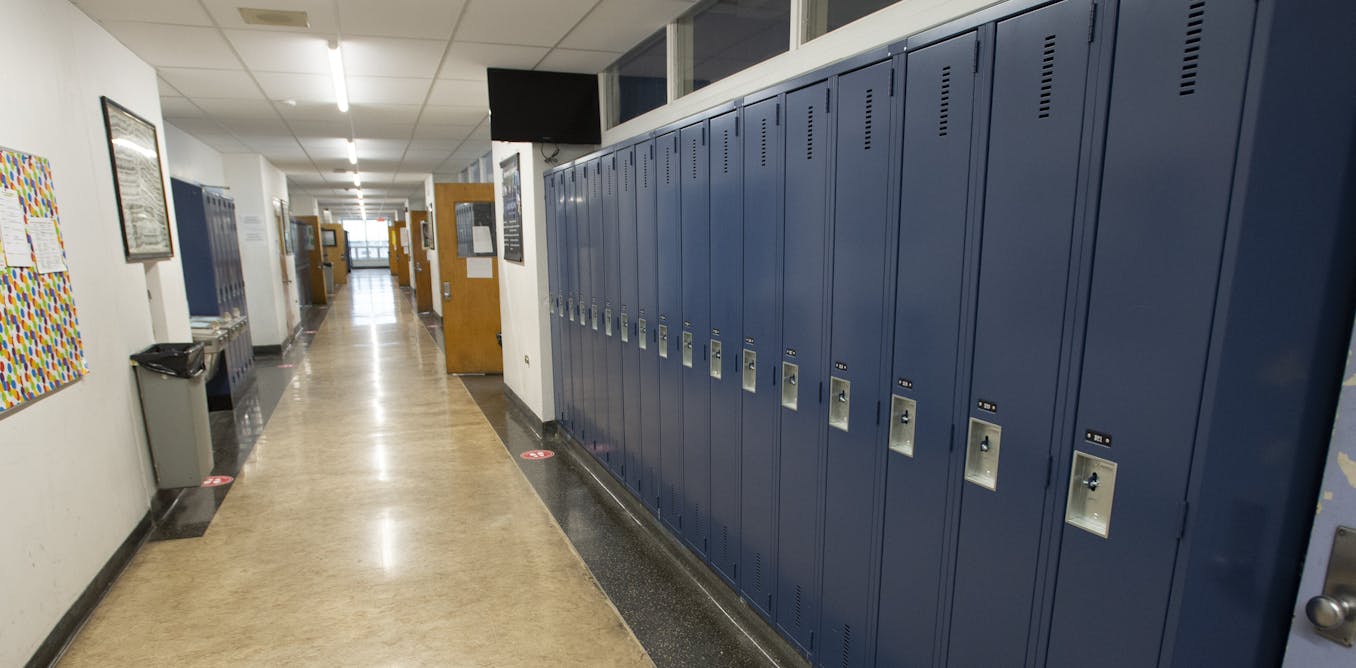Education
Language Classes for Immigrant Students Risk Perpetuating Inequity

Different regions employ various strategies to integrate immigrant students who require language support. In Québec, the classe d’accueil, or welcoming class, serves as a key component of the provincial government’s linguistic, educational, and social integration program. Designed for students needing assistance in improving their language skills, this model operates from preschool through secondary school, with a significant presence in areas like Montréal.
The welcoming class caters to students who do not possess adequate proficiency in French to join mainstream classes. In high schools, students primarily focus on French, alongside subjects such as math, arts, and physical education, all while remaining separate from their peers in mainstream education. Research conducted by a doctoral candidate in the field has highlighted the complexities of this model, revealing that the welcoming class is often mischaracterized as a transitional phase.
Interviews with 37 school workers and 7 students have illustrated that many students experience prolonged stays in the welcoming class, with some never transitioning to mainstream education. The research indicates that these students may be placed below their age level or directed towards adult education programs, which could hinder their prospects for higher education and well-paying jobs.
Challenges for Immigrant Students
Research findings indicate that students can remain in the welcoming class for several years if deemed unprepared for mainstream classes. Older teenagers arriving with little to no knowledge of French may find themselves directed to adult education programs after secondary school, leading them to study alongside much older peers. This scenario can impact their motivation and hinder academic success. Furthermore, students assigned to special education may be categorized as having learning disabilities, or they may be directed into vocational programs aimed solely at immediate employment.
School workers have expressed concerns regarding the perception of immigrant students. Many see them as having individual or cultural “deficits,” which may stem from learning difficulties or academic delays. Some workers also pointed to systemic issues within the educational framework, identifying a lack of resources dedicated to meeting the unique needs of immigrant students.
Families Not Sufficiently Informed
Insights from students reveal a troubling gap in communication regarding the education system among immigrant families. Many students and their parents lack a comprehensive understanding of the implications associated with placement in the welcoming class, general adult education, or special education. This disconnect can lead families to accept placement decisions without fully grasping the potential long-term consequences. Often, immigrant parents, eager for their children to receive a good education, trust the school’s recommendations and do not question the advice given by educational professionals.
Placement Decisions Shape Futures
Extended periods in the welcoming class, along with placements in special education or adult programs, can significantly affect immigrant students’ futures, particularly those from low-income backgrounds or who have faced interruptions in their education. Accounts from students suggest that such placements can deepen feelings of exclusion and otherness. As noted in existing research, specialized education often reinforces perceptions of difference, particularly concerning race, language, and culture. While the discourse surrounding integration may appear positive, it can mask underlying categorization processes that limit students based on their conformity to dominant educational norms.
It is important to recognize that educators facilitating these placements often have altruistic intentions. Many school workers strive to support immigrant students despite the challenges presented by an under-resourced system. Nonetheless, if the educational framework continues to perpetuate inequalities, well-meaning intentions are insufficient for achieving equity.
Moving Toward Equitable Education
To create a more equitable educational experience for all students, several recommendations emerge from this research. First, it is crucial to ensure immigrant families receive clear and accessible information about their rights and options. This can be achieved through adequate support, including translation services, and by fostering full participation in decision-making processes.
Second, providing training and support for educators that promotes an asset-based perspective rather than a deficit-based one can help validate and embrace diverse learning styles. Lastly, the system should consider inclusive models within mainstream classrooms, allocating sufficient resources to broaden placement options.
By adopting more flexible, equitable, and student-centered approaches, educational systems can enhance support for immigrant students and promote their academic success. This research was funded by the Fonds de recherche du Québec – Société et Culture (FRQSC) and the Social Sciences and Humanities Research Council of Canada (SSHRC).
-

 Politics4 weeks ago
Politics4 weeks agoSecwepemc First Nation Seeks Aboriginal Title Over Kamloops Area
-

 World5 months ago
World5 months agoScientists Unearth Ancient Antarctic Ice to Unlock Climate Secrets
-

 Entertainment5 months ago
Entertainment5 months agoTrump and McCormick to Announce $70 Billion Energy Investments
-

 Science5 months ago
Science5 months agoFour Astronauts Return to Earth After International Space Station Mission
-

 Lifestyle5 months ago
Lifestyle5 months agoTransLink Launches Food Truck Program to Boost Revenue in Vancouver
-

 Technology3 months ago
Technology3 months agoApple Notes Enhances Functionality with Markdown Support in macOS 26
-

 Lifestyle3 months ago
Lifestyle3 months agoManitoba’s Burger Champion Shines Again Amid Dining Innovations
-

 Top Stories2 months ago
Top Stories2 months agoUrgent Update: Fatal Crash on Highway 99 Claims Life of Pitt Meadows Man
-

 Politics4 months ago
Politics4 months agoUkrainian Tennis Star Elina Svitolina Faces Death Threats Online
-

 Sports5 months ago
Sports5 months agoSearch Underway for Missing Hunter Amid Hokkaido Bear Emergency
-

 Politics5 months ago
Politics5 months agoCarney Engages First Nations Leaders at Development Law Summit
-

 Technology5 months ago
Technology5 months agoFrosthaven Launches Early Access on July 31, 2025





















